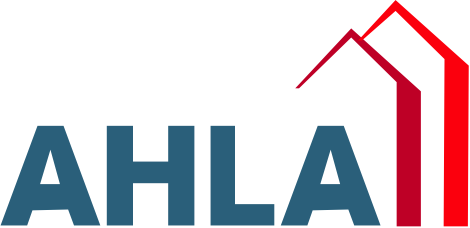Minnesota Hotels Increase Education and Preparation Ahead of Big Game
MINNEAPOLIS, MN – (January 31, 2018) – With Human Trafficking Awareness Month and festivities in conjunction with this week’s NFL championship game wrapping up, the American Hotel & Lodging Association (AHLA), ECPAT-USA, Polaris, the Minnesota Lodging Association and local hotels in the North Star State have teamed up to increase education and training on human trafficking prevention and call on attendees to one of the world’s largest sporting events to remain vigilant.
The International Labor Organization estimates that 40.3 million people are currently living in trafficking or exploitative situations. One in four of those victims are children. Many believe that the likelihood of human trafficking increases in connection with high-density events such as the NFL championship.
For several years, AHLA, its member companies, Polaris and ECPAT-USA have offered an online training program, titled “Your Role in Preventing Human Trafficking: Recognize the Signs,” for hotel employees to understand the indicators for human trafficking and how to spot traffickers and potential victims in hotels.
This training covers both forced labor and sex trafficking and is available to the broader industry through AHLA. A portion of the proceeds from the sale of the training is donated to Polaris and ECPAT-USA to further support their important efforts. The training has been utilized by tens of thousands of hotel employees and is a prime example of the types of collaboration needed to confront trafficking.
“AHLA and our member companies are committed to preventing these heinous crimes. We value the partnerships we have developed with organizations such as Polaris and ECPAT-USA, which undertake incredible work every day and have helped our industry bolster its response to human trafficking,” said Katherine Lugar, president and CEO of AHLA. “We will continue doing everything we can to raise awareness and train hotel workers on the vital role they can play in helping victims.”
The training provides an overview of the issues surrounding human trafficking and the signs for hotel staff to look for when identifying potential cases of trafficking, as well as suggested protocols for responding to suspicious activity.
“The only way to effectively turn the tide against traffickers is through coordinated and concerted efforts between non-governmental organizations, government agencies, and businesses whose facilities or services could be utilized by traffickers perpetrating crimes,” said Michelle Guelbart, Director of Private Sector Engagement for ECPAT-USA. “Trafficking can happen in any city, regardless of whether there is a major sporting event, so we urge hotels around the country to utilize the training all year round.”
“The hospitality industry has a critical role in disrupting the human trafficking networks that operate in communities across the United States,” said Bradley Myles, CEO of Polaris. "Hospitality workers can be the eyes and ears on the ground, recognizing patterns and seeing suspicious activity that can be reported to law enforcement or the National Human Trafficking Hotline.”
The employee training program was developed by Marriott International, AHLA, ECPAT-USA, and Polaris.
Dan McElroy, Executive Vice President of the Minnesota Lodging Association, representing some 2,000 hospitality businesses in the North Star State, says his members have been preparing for the big game and human trafficking prevention for months.
“Preventing sexual trafficking in our hotels has been a priority for our members for a long time. Training for team members to recognize the warning signs and to appreciate the trauma that these crimes have on young victims has been going on for years,” stated McElroy. “Hosting the NFL championship has raised the immediate urgency of the issue at a time when our members are also working to be fabulous hosts to a throng of great visitors.”
Part of preventing human trafficking is being able to identify specific warning signs and the hotel industry has been training employees on what to look for in potential situations. McElroy says employees are trained that no concern is too small and know what to do if they suspect human trafficking activity, which includes not confronting but seeking help and calling law enforcement.
###
About American Hotel & Lodging Association
Serving the hospitality industry for more than a century, the American Hotel & Lodging Association (AHLA) is the sole national association representing all segments of the eight million jobs the U.S. lodging industry supports, including hotel owners, REITs, chains, franchisees, management companies, independent properties, bed and breakfasts, state hotel associations, and industry suppliers. AHLA proudly represents a dynamic hotel industry of more than 54,000 properties that supports $1.1 trillion in U.S. sales and generates nearly $170 billion in taxes to local, state and federal governments.
About Hospitality Minnesota
Hospitality Minnesota is a coalition of three hospitality associations, Minnesota Restaurant Association, Minnesota Lodging Association and Minnesota Resort & Campground Association, serving as the voice of hospitality in the North Star State, representing some 2,000 hospitality businesses.
About ECPAT-USA
ECPAT-USA is the leading anti-child trafficking policy organization in the United States seeking to end the commercial, sexual exploitation of children through awareness, advocacy, policy, and legislation. ECPAT-USA is a member of ECPAT International, a network of organizations in more than 90 countries with one common mission: to eliminate the sexual exploitation of children. For more information, visit ecpatusa.org.
ABOUT Polaris
Polaris is a leader in the global fight to eradicate modern slavery. Named after the North Star that guided slaves to freedom in the U.S., Polaris systemically disrupts the human trafficking networks that rob human beings of their lives and their freedom. Our comprehensive model puts victims at the center of what we do – helping survivors restore their freedom, preventing more victims, and leveraging data and technology to pursue traffickers wherever they operate.

